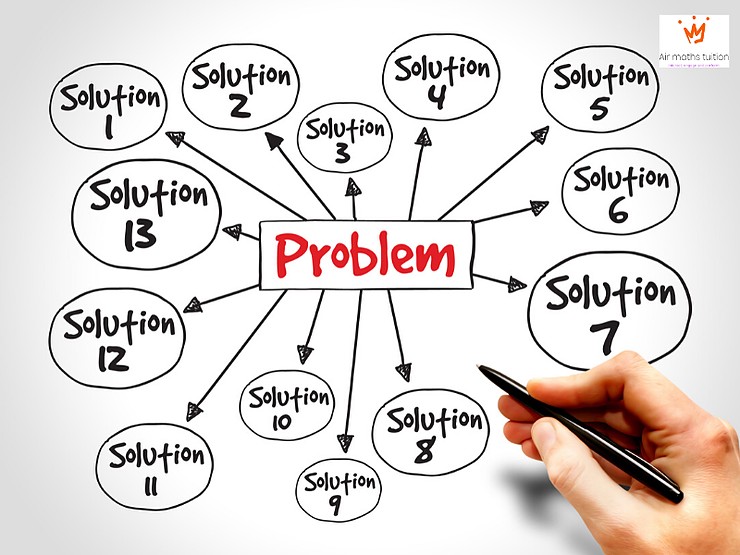
How problem-solving in Maths can help you be more successful
Problem-solving is one of those life skills that you can’t really get along without. For most, their first introduction to learning these is through problem-solving in Maths.
Not only do these skills help us achieve good grades for the subject, but they can help make life a little less complicated. To accomplish this, not only do you need to learn the skills, but also how to apply them to everyday situations.
Problem-solving skills are connected to so many skills that we use in our daily lives and specifically in our careers.
These include:
- analytical skills
- innovative and creative thinking
- a lateral mindset
- adaptability and flexibility
- level-headedness
- initiative
- resilience
So where do we need problem-solving skills and how can Maths help, you may wonder.
Every day, from a young age, we are faced with problems. Whether it is your sibling making you angry, dealing with difficult decisions like a subject or career choice or a maths problem. Maybe you are an entrepreneur and need to deal with business choices.
Mental processes in problems-solving
In cognitive psychology, problem-solving refers to the mental process that people go through to discover, analyze, and solve problems.
It is worth noting that this involves defining the problem. Now, this might seem a given, but it is probably the most important step. Without properly defining the problem, you would not be able to analyze or solve it successfully. If your understanding of the problem is faulty, your attempts to resolve it will subsequently be faulty.
This is relevant whether you are trying to solve a maths equation, choosing a life partner or making a business decision.
Problem-solving strategies
There are various strategies. The key is to be able to use these strategies, not only for familiar problems but to apply them to unfamiliar ones.
First, let’s have a look at how to follow a general problem-solving procedure as so nicely explained by Gary Hall in his Maths Problem Solving Strategies post.
- Read / Define the problem carefully
- Choose a strategy and make a plan
- Carry out the plan and solve the problem
- Check your working out and make sure your solution actually answers the question
Which strategies are there then, not just for maths, but for life?
1. Algorithms
Algorithms are by definition a set of rules or processes to be used to solve a problem. This would, therefore, involve a pattern and applying the algorithm. Algorithms are used in computer programming to create functions. There are many uses for algorithms with maths equations being a great example of these.
Search engines, like Google, also use these to display the most relevant results to our online searches.
Although an algorithm ensures an accurate answer, it may not always be practical as it can be a very time-consuming process.
2. Trial and Error
This involves trying different solutions and ruling out the ones that don’t work. Although this may seem like a haphazard way of approaching a problem it can be quite successful when your options are limited.

3. Heuristics
Heuristics are rule of thumb strategies that help people make decisions quickly, usually based on previous experience. Although they can be great to shorten the problem-solving process, they are not always accurate and may be highly influenced by cognitive bias.
4. Insight
Sometimes the solution to a problem can appear as an insight. This often happens as your subconscious notices similarities to previous problems and applying the same principles.
5. Logical Reasoning
This involves organising the information and eliminating approaches that won’t work.
Other strategies include drawing diagrams, tables and working backwards. However, never underestimate stepping away from the problem. Whatever it is. It sometimes provides you with the perspective you need.
How can problem-solving in Maths make me more successful
As we all know, maths is all about practice. Not only does this give us the ability to use our insights more effectively, but it also builds confidence.
At Air Maths Tuition we strongly believe that through practice and building problem-solving strategies you will reap the benefits in other areas of your life.
“If you stop at general math, then you will only make general money.”
Snoop Dogg
For great resources, make sure to visit Pixi Maths for Maths Problem Solving. You will find some great worksheets and other resources to help you on your way.
Even better, find lots of A-Level Maths Revision sheets right here.
Contact us today to see how we can help you achieve your best results.[/vc_column_text][/vc_column][/vc_row]